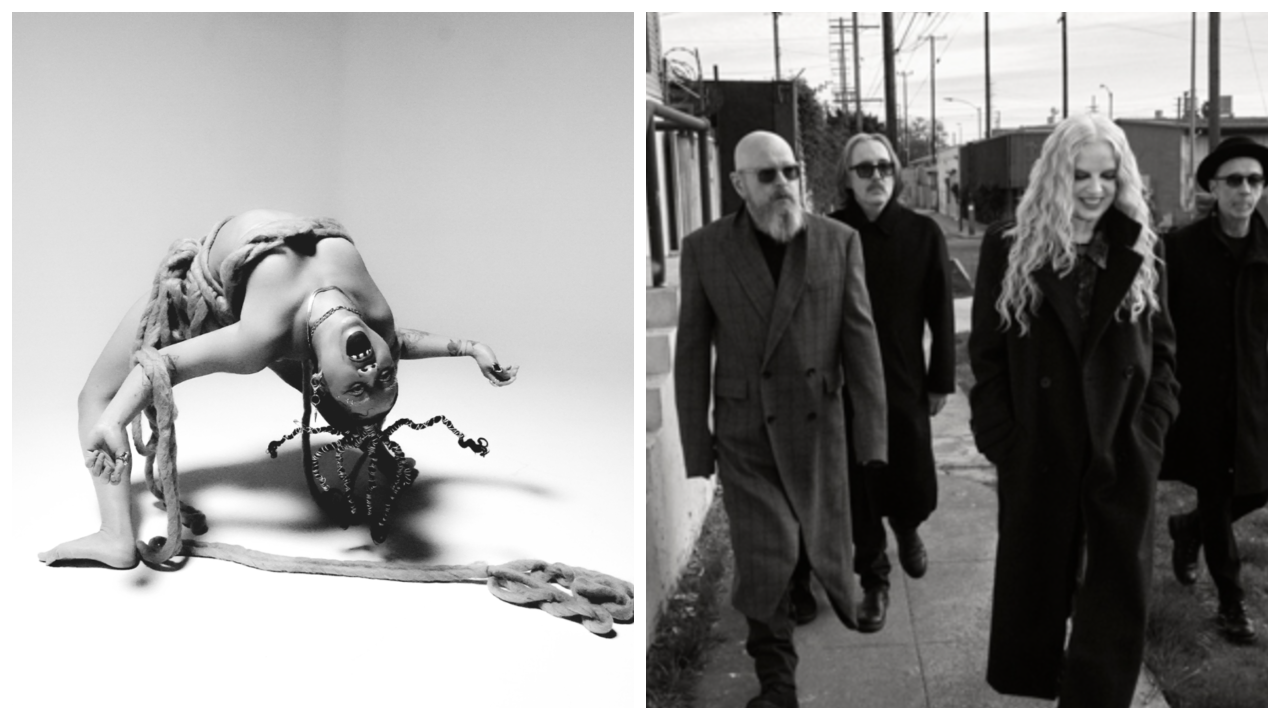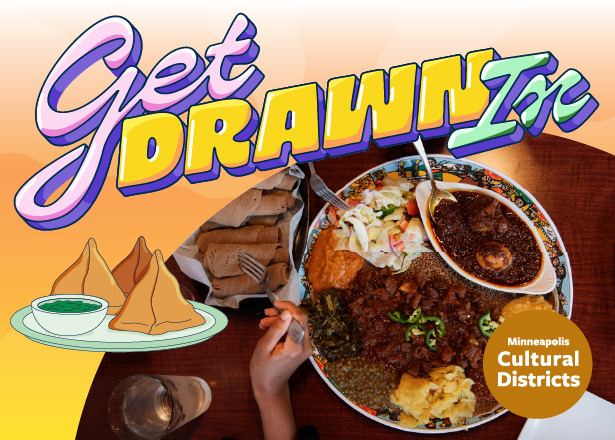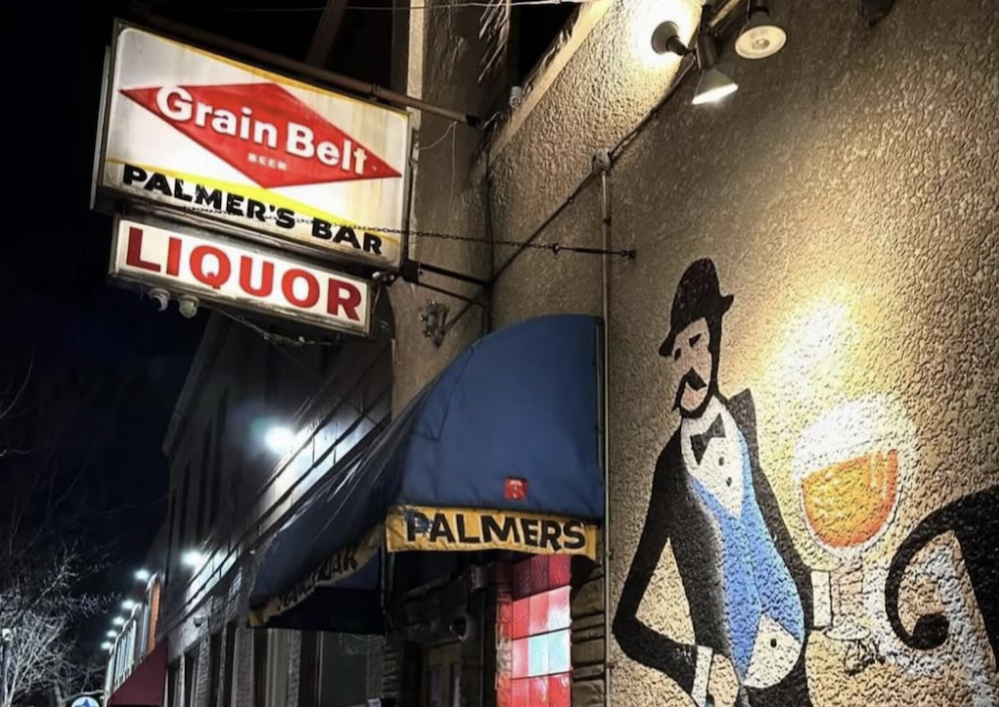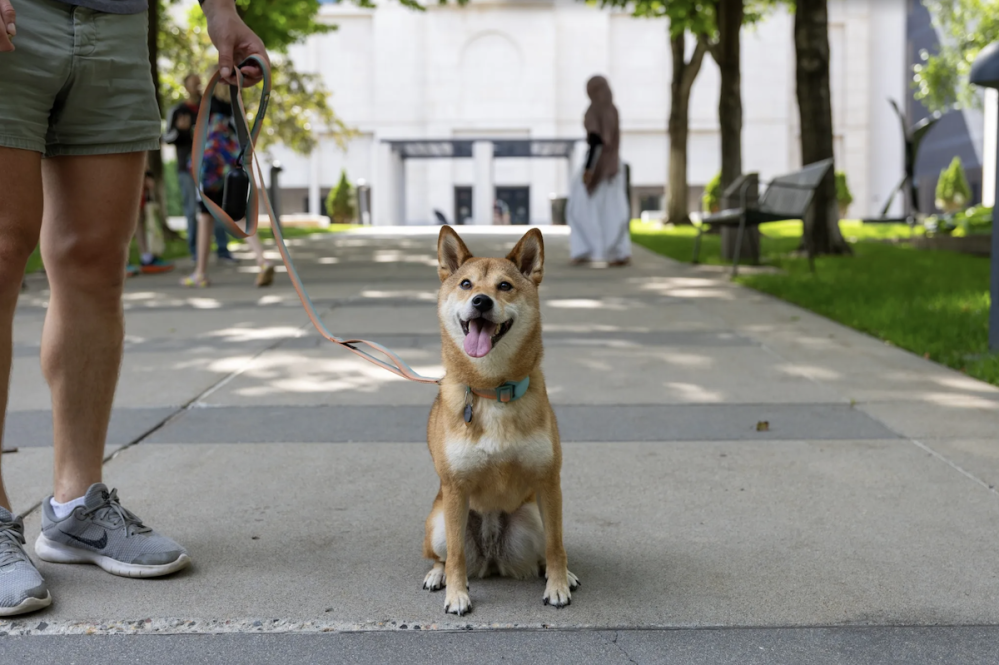Welcome to Racket’s Money Journal series, where you can snoop on the finances of an anonymous Twin Cities neighbor. Interested in submitting your own? Email jay@racketmn.com for instructions on over-sharing the monetary details of your life! H/T to Refinery29 for pioneering a tremendous concept that we’re excited to localize.
Personal Info
Job: Assistant professor (temporary)
Age: 37
Neighborhood: Phillips
Education: Master’s degrees
Salary: $55,000 + $2,000-ish from farmers market side gig, plus $0-$5,500 from extra teaching or facilitation jobs
Partner’s salary: That sounds nice! How much are you offering?
Dependents: None
Estimated net worth: Is this a thing that people know about themselves? Or only people who have a positive net worth?
Debt
Student loans:
- Navient (private): $15,737.27
- MOHELA (federal): $12.451.71
I try not to check these balances very often so that I can actually see when they go down. This probably comes from years of seeing it sit at $65,000 from 2008-2011 when all I could do was pay interest, then jump to $80,000 for grad school. I honestly can’t believe that I’m almost done paying them. (And that maybe a little bit of it might actually get canceled?!)
House: $165,269.46
Credit Card: Something less than $4K? Technically, it’s mostly interest on my brother’s ex-girlfriend’s unpaid cat bills from a few years ago. I’m a co-signer, and it popped up on my credit when I applied for a mortgage this spring, so my brother called the company to try and get me removed as a co-signer and got conned into starting monthly payments on it… which he can’t afford… hence the already-accrued unpaid interest. Lesson learned (I think for both of us).
Assets
Checking: $3,037.53
Savings: $18,533.77
I started this account in 2017 with a $1,500 car insurance payout in hopes of buying a house before I turn 40… and I did it! This meant putting tax returns in this account instead of paying down extra on student loans and continuing to live in really cheap places with housemates. Since I was expecting to drain this account on a down payment, it feels uncomfortable to still just have this money sitting around. Thousands of dollars in the bank?? Who has that?? I do now, apparently. What is it about capitalism and inequitable financial systems that make some of us think we haven’t earned our wealth and others think they earned it all by themselves without any white supremacist policies on their side?
After spending the first three years after college in Americorps and then as a “full-time intern” making $1,000/month or less, then going back to grad school to avoid student loan payments, I’ve had to adjust my mindset about money and learn to be comfortable being financially comfortable. Even though I know that most of us give more value to the world than we are actually paid for, that it’s OK to have money, that a lot of people have way more money than I do (and way less), and that one emergency room visit could drain this account, it still is hard owning this privilege. And I am incredibly grateful for it.
House: I just bought a house! Do I get to count this as an asset now? How do assets work and who decides whether it’s an asset or not?
Retirement account with TIAA (do they call this a 403b?): $15,568.08.
Whoa—that’s actually a lot of money! I can actually retire someday!! Am I going to retire at the expense of my anti-capitalist values? Yes. But I’ve given up on communal saving. When I was first offered a retirement account from an employer at age 29, I was convinced there had to be ways to save that were not rooted in the scam we call the “stock market”... so I tried to find alternatives… and also didn’t contribute to this fund because I needed my full salary to pay bills. Then my parents retired and promptly started spending heaps of money on medical bills, so I panicked and became a jaded employee stuck in an exploitative financial system who just wants to retire someday and be able share with my siblings who maybe will never have retirement accounts.
Other things:
- Two old bikes
- Lots of camping gear
- A computer
- Lots of kitchen supplies
- Seeds
- Houseplants that make great cuttings to share
- Friends and family to rely on for lots of things when needed
Monthly Income
Gross income: $2,710 (+sometimes an extra $100-$400 for other things)
Monthly Expenses
Mortgage, tax, and insurance (in escrow—which I think means I’m paying someone to help me pay my bills…?). Principal $165.68; interest @ 6%: $827.18 (For real?? This is more than I’ve ever paid for rent in my life!! But I guess “all of us” are having to feel some financial pain in order to “avoid inflation,” right…?); tax, county: $199.81; insurance: $132.94; total: $1,325.61
Ground lease fee to City of Lakes Community Land Trust: $20
Utilities:
Still figuring this out in my new house. Here’s November:
- Electric: $46.58
- Gas: $194.25 (Ummm… when is that free window plastic I ordered from CenterPoint a month ago actually going to show up at my house?)
- Water/sewer/trash: $151.44. For two months + $3 late fee because automatic payments didn’t work. I thought about not paying it because it took two months for the city to deliver a recycle and compost bin, but that seems like it would require multiple phone calls and lots of time on hold and wouldn’t result in anything.
- Internet: $50
- Phone: $50. I send my parents $600 for this once or twice a year because my siblings and I are still on the same family plan we all started in 2004 together. I don’t know what the actual bill is. Am I a little embarrassed to admit this? Yeah. Seems worth it to not have to change my phone number, though! And gives me an excuse to “repay” my parents for the times they spotted me for rent, food, or car repairs and didn’t keep track of the debt.
Transportation: $0-100. Currently, this includes insurance and gas for a friend’s car that I’m taking care of for a while. Normally, this includes an HourCar membership, some MetroTransit trips, bike fixes, Amtrak/Greyhound tickets
Food: $200. This is a made up number I’ve been telling myself and others since 2008 when my first SNAP/EBT allowance was around this much. It felt luxurious, and I made a commitment to always buy good food and share with friends. I don’t think my food purchasing has changed much since then… but someday I’ll do the math.
Student loans: $328.76 (Navient), $0 (MOHELA…for now??)
Health-related things (therapy, chiropractor, vitamins, and probiotics): $0-150
Monthly subscriptions:
- Netflix. I took over the family account a few years ago and don’t really want to know how much it is because it might make me drop it and remind my family to watch less TV.
- $0.99 iCloud storage. Because I used to have a phone with no storage, and now I’m still paying it because TCF switched to Huntington Bank a while ago and I didn’t pay attention to this process because I was almost out of money in the account anyways. So, maybe this is coming from an account that has a negative balance by now? Someday I’ll check… or remember to cancel this.
Giving: $100-$300. Some regularly donations to organizations, some occasional “loans” to friends or family with no expectation of getting paid back.
Money Talk Q&A
Did your family talk about money growing up?
Yes, but I mostly remember it going from the extremes of stressing and celebrating, like when my dad took a secret trip to the nearest city and came home with DVD player and surround sound after watching The Matrix at a family friend’s house. My parents were honest when they were stressed about money but also tried real hard not to make my siblings and I worried about it. It didn’t always work, but I appreciate the way they tried to let us just be kids. They also liked to share (and still do!) about how they saved and researched the best deals when they did make a big purchase. And they were very open about regularly giving donations or helping family or people from church occasionally as well. I often got to hear the mumbled discussions in the other room after someone from church stopped by to ask for grocery money and it helped me think about the complexities of wealth, poverty, and generosity. My grandparents often talked about growing up poor and their own journey to being financially stable, sharing lots of stories about that process and what they learned through it. So, I think I got a not-very-practical-but-very-values-based financial education.
Example money conversations:
Me: Hey, parents, my gymnastics fees had to go up this month…so can you give me a check for $$$ today?
Parents: I guess we can do that, but we’ll get you a check next week
Me: OK… (walk away and internalize the guilt)
Grandpa: Huh?
Everyone: Hey, are your hearing aids in?
Grandpa: Oh, they don’t work anymore.
Everyone: Alright, when will you get new ones?
Grandpa: Well, hearing aids are expensive…
Everyone: You know none of us care about getting an inheritance, right? Go get new hearing aids!
[Something breaks in our 100-year-old house.]
Dad: (Made up swear words) I don’t have time for this!
Mom: Well, let’s just call someone to fix it
Dad: We don’t have money for that!
Me and my siblings: (Turn up the volume on the TV or go join the conversation and try to make jokes about the house falling apart.)
Did you worry about money growing up?
Probably more than I needed to. We always had what we needed and usually more! My parents bought the house they still live in right before I was born, and they both worked stable jobs (teacher and social worker) until they retired. We usually took one vacation every year and it never involved elaborate hotels or airplanes, but we enjoyed it and made it an adventure. I was always aware that we had extended family with more money and less money than us, neighbors and friends with more money and less money, and that was something my parents would talk about once in a while. My immediate family didn’t really value wealth and “things” so I don’t remember ever being embarrassed for not having expensive clothes or shoes or other things because I mostly didn’t care.
At what age did you become financially independent?
I mean, if my parents are still paying my phone bill, am I financially independent? Debatable. But I stubbornly wanted to be financially independent when I moved out of state for college. I had an old car that my parents owned and paid insurance on, but I paid for gas, food, school expenses, and everything else I needed. There were definitely times after that when I had to ask my parents for a couple hundred dollars to pay bills, and sometimes I could pay it back right away and sometimes not. The last time I had to ask for money to help pay rent was when I moved to Minneapolis in 2014 and was waiting for my first paycheck from a new job. Since then, I’ve been able to actually start saving money and helping out other people. Despite the financial stress growing up, I recognize the incredible privilege that comes with having a stable home life and parents who helped out beyond just meeting basic needs.
How did you learn how to budget your life?
There was this one assignment in math class in high school that required making up a fake life and trying to live off of a budget. I searched the classified ads for an entry-level teaching job, cheap used car, and cabin in the woods. I quickly realized teachers don’t get paid enough money. Right before I left for college, I started my first bank account (jobs in high school paid cash and I didn’t work that much). Then my first year of college involved starting my second account when I realized banks don’t always cross state lines, losing that second account when the balance went below zero and the bank person very kindly just asked me if I wanted to close it instead of paying the overdraft fees, potentially giving away my social security number on internet scams that told me they would help get me money for college. (After signing for my second semester loans and realizing I WILL NEVER PAY THESE OFF, and then graduating in 2008 when the economy crashed.) So, I guess I learned by trial and error? I’ve never needed to spend much money, so I would just check my bank account regularly and decide what I could and could not do, like only buying French fries when going out to eat or stopping at the fancy grocery store on Sundays when it was free-sample day.
Have you ever received inherited income, major financial gifts, or large insurance payouts?
Not really, but here are some other examples of generational wealth I can claim:
- GI Bill benefits that allowed both of my grandpas to graduate from college
- Lower interest rates on student loans because my parents co-signed for me
- A good credit score because my parents convinced their banker friend to give them a car loan and add me as a co-signer when I bought my first car, so I got to pay my parents instead of the bank and increase my credit score through their regular on-time payments to the bank
- My grandma’s couch
- My great grandparents’ dining room table
- My grandpa’s road bike
- My grandma’s sewing machine and more polyester fabric than anyone needs in 2022
- Many instances of $20 bills being slipped into my pockets when saying goodbye to grandparents (“for gas money”—until I finally convinced them that I was making more money than they were and I really just wanted to visit them)
- An annual REI gift card at Christmas “from Grandma & Grandpa” (they’re dead)
- Dishes
- Old science and nature books
- Loon knick-knacks
Do you worry about money now?
Yes, but in different ways than I used to. Instead of worrying about whether I can both pay rent and eat good co-op food, I worry about about things like this:
- Do I have too much money? Am I not being as generous as I want to be? Have my siblings taken out any more predatory pay-day loans and not asked for help because they know I have a mortgage now? Am I not treating myself enough?
- Is that dead tree in the backyard about to fall on my house and was it a mistake to choose the cheapest home insurance option?
- Did I just spend $65 through Facebook Marketplace because I love the idea of being someone who has green velvet curtains… without thinking through where I’ll actually put them?
- Do I need to get that extra bedroom fixed up right away so I can have a housemate to help me pay rent? Do I need to have two housemates instead of saving space for an office for myself? Is it OK to take up space in my own house? Can I wait for friends to move in or do I need to find strangers again? (Yes, I get to take up space in my own house; no, I do not need or want to find strangers to live with…yet.)
- Why did I just buy a house? I don’t actually believe in individual property ownership. My job ends in June. The combination of corporate greed and our obsessive talk of a coming recession is probably going to actually cause a recession. Will there be a $15/hour food service job for me when that happens? Can I pay my mortgage on $15/hour? Were those terrible landlords actually that bad anyways if I never paid over $600 for rent? (Yes, they were—it was cheap because the houses sucked and I lived with lots of people and kept the heat at 64 degrees.)
- What if the family jokes come true and I really am our only hope for financial stability in the future? Will there be a nursing home where my brother, sister, and I can actually share space on my retirement funds?
How much do you think a person or household needs to earn to live comfortably in the Twin Cities?
What does it even mean to be “comfortable?” And what if we weren’t talking about how much personal money we need but about how much we need our city to actually invest in the systems and services that make it possible for everyone to be comfortable no matter how much personal money they have?
Day 1
$50 at Mill City Farmers Market. (It was cash and tokens so it felt like $0). Squash, onions, spinach, sauerkraut, salmon, and chutney.
$9.72 at Habitat for Humanity Restore. Trim to cover mouse holes, can of stain, and new safety glass because mine have paint all over them from the ceilings.
Total: $59.72
Day 2
$4 for all art from an overpriced and overwhelming but very cool antique store.
Total: $4.
Day 3
$16.10 at MayDay Cafe. Coffee to motivate myself to start grading and assuage some of the guilt for perpetuating an educational system built on privilege that rewards meeting arbitrary deadlines, following directions, and having English as your first language. Scones to give moral support to former housemates and give me an extra excuse to stop by and continue procrastinating on the grading.
Total: $16.10.
Day 4
$7 at the Dining Hall. Not-so-terrible sushi because I forgot my lunch and the $4 soup options were not impressive.
Total: $7.
Day 5
Nothing.
Total: $0.
Day 6
$8 at Burning Brothers Brewery (cash again, so it felt like it was free).
Total: $8.
Day 7
$10 at St. Vincent DePaul Thrift Store. (More cash—I sold an unused Centurylink modem for $50 last week, so I’m living it up!) I bought a framed dolphin picture that reminded me of a school folder I had in 2nd grade. I mostly just want the frame, but it’s good to know that I can display the dolphins if I need to some day!
Total: $10.







